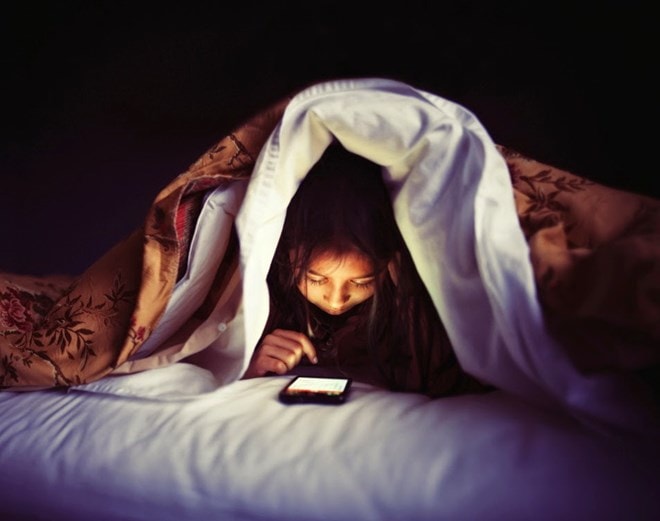Reading books on iPad, phone before bed can kill you
You probably already know that using electronic devices with screens before bed can affect your sleep, but new research suggests the problem is even more serious.
 |
| (Source: AP) |
Reading or viewing content on your iPad before bed not only makes it harder to fall asleep, but also impacts how sleepy and alert you are the next day, new research from Brigham and Women's Hospital (BWH) in Boston, Massachusetts, says.
The study, published Monday in the journal Proceedings of the National Academy of Sciences, says the new findings could have implications for anyone who uses e-readers, laptops, smartphones, or some types of television before bed.
The new research agrees with the conclusions of previous studies, which have suggested that looking at screens before bed can be harmful to health.
“We know from previous studies that light exposure in the evening affects sleepiness and alertness, as well as limits melatonin production,” study co-author Dr. Anne-Marie Chang, an assistant neurologist in the Division of Sleep and Circadian Disorders at BWH, told The Huffington Post via email.
“This study provides comprehensive head-to-head comparisons between reading from a light-emitting device and reading a printed book, and the effects on sleep.”
If you don't want to feel like a zombie the next day, you should consider this study's recommendation: Read a print book if you want to stimulate your brain before bed, and avoid screens as if they might kill you—because, in fact, they probably will.
Chang said sleep deprivation—not getting enough sleep or poor quality sleep—is linked to other health problems such as obesity, diabetes, and cardiovascular disease. Chronic melatonin deficiency has also been linked to an increased risk of certain cancers.
Also, sleep has its own benefits, so cutting down on sleep time is obviously something to avoid.
The study lasted two weeks and involved 12 participants. Some read on an iPad for four hours before bed for five consecutive days, then repeated the process with a printed book. Another group did the opposite: They started with a printed book, then switched to an iPad.
Researchers found that people who read on iPads took longer to fall asleep, felt less sleepy at night, and had shorter REM sleep periods than those who read books.
The iPad readers also produced less melatonin, which helps regulate your sleep. They were also more tired the next day than the book readers, even though both had gotten a full eight hours of sleep.
Not only that, the actual effects may be even worse than what the researchers observed. Chang said that because iPad users are more alert, they may stay up later than they should, further affecting their sleep.
If you must use your tablet, phone, or computer before bed for some reason, there are some things you can do to make things better.
Try using a blue light blocking filter - there are apps in the Android app store that can create this effect, but iOS users will have to use a physical filter on their device. Try using F.lux for desktop.
Research has shown that blue light makes you more alert and suppresses the production of melatonin, which negatively affects sleep quality.
“The best advice (though not the most popular) is to avoid using devices with bright screens before bed,” Dr. Chang told the Huffington Post. “For those who must use computers or other light-emitting devices in the evening, software or other tools that filter out blue light may help.”
According to Vietnam+

